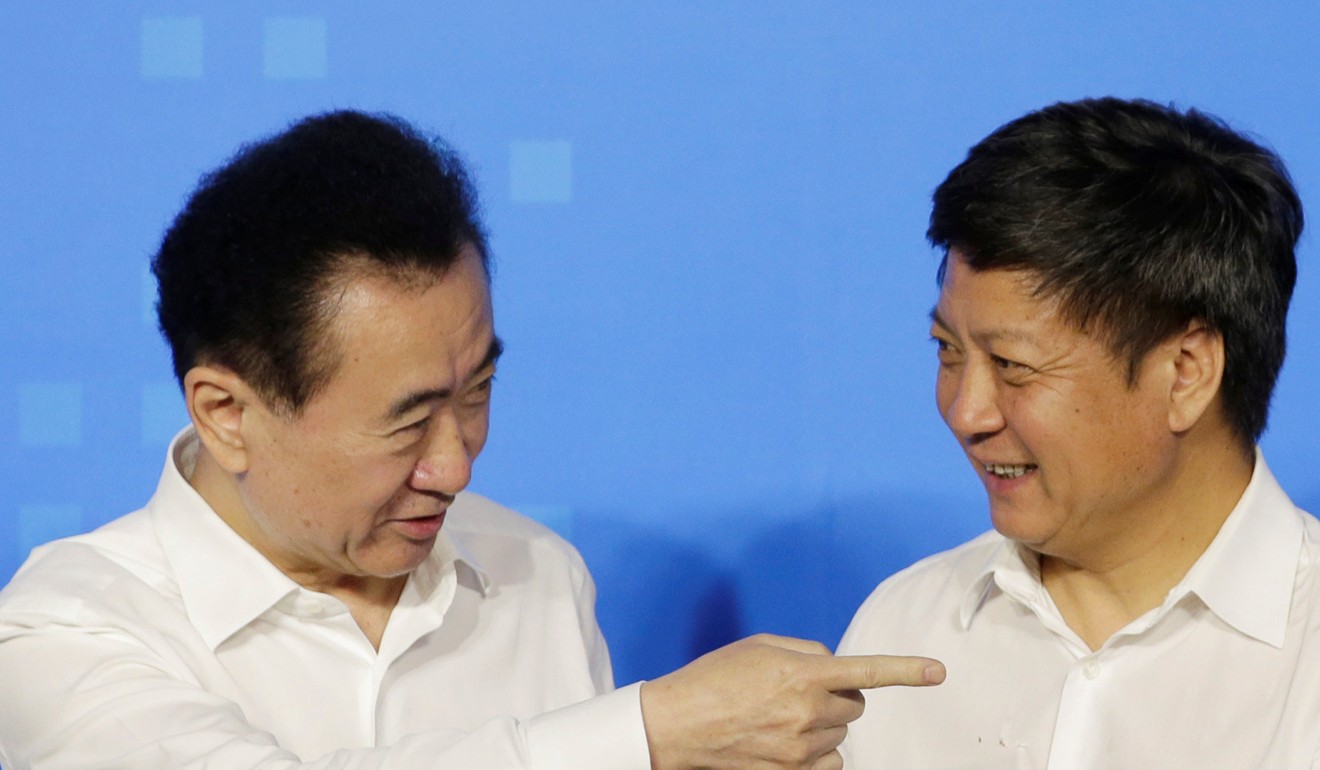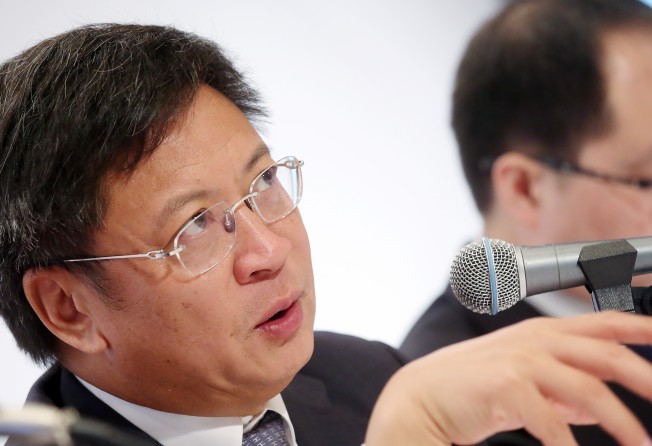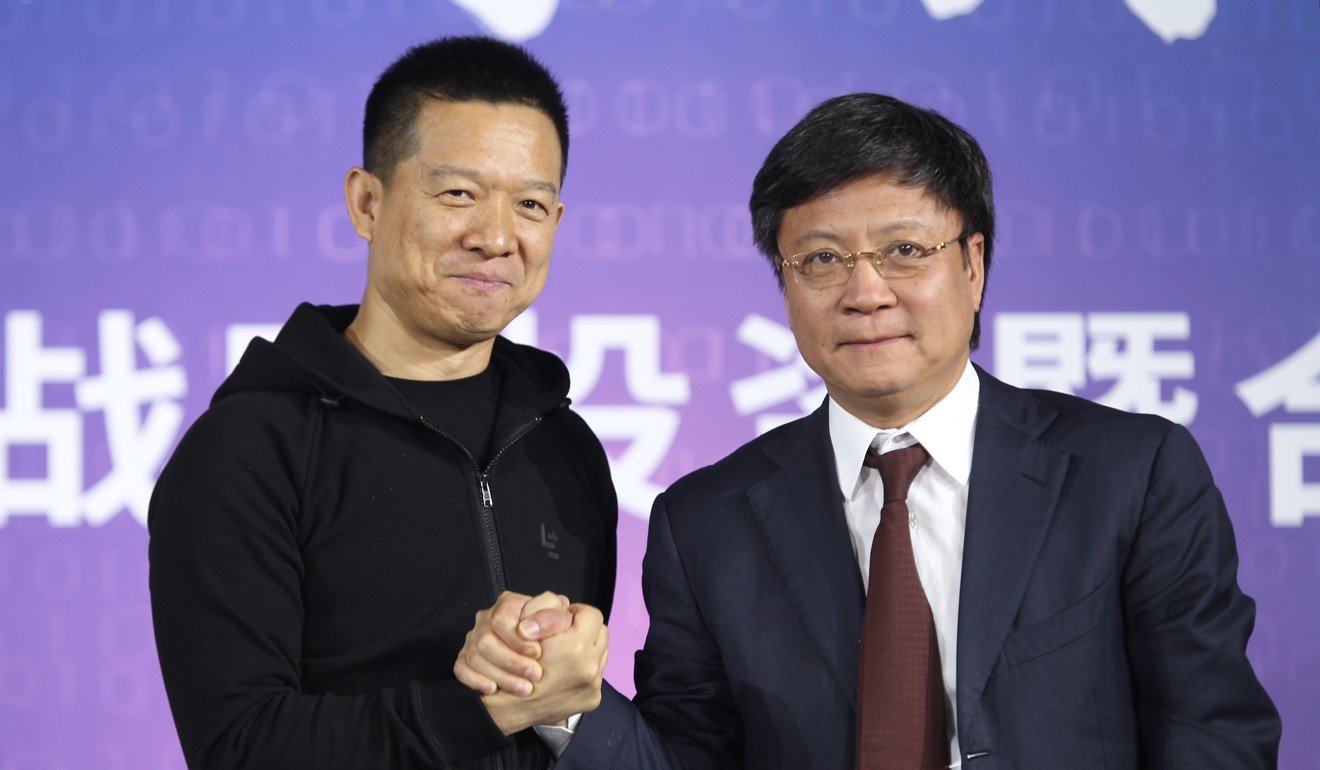
Sunac's Sun Hongbin: from outside top 50 to China’s fourth-richest property tycoon in just 12 months
Hui Ka-yan, chairman of China Evergrande Group, tops Hurun China’s property wealth ladder

A series of aggressive asset purchases over the past year has propelled real estate magnate Sun Hongbin into China’s top five property billionaires, from outside the top 50, 12 months ago.
His sweeping ascendancy is part of a reshuffle at the top of China’s property wealth ladder, reflected in the annual Hurun property entrepreneurs list, released on Monday.
The list also saw Wanda Group Wang Jianlin, top rich person for last year’s ranking, sliding into the third place, replaced by Hui Ka-yan, chairman of China Evergrande Group, who was ranked the second last year.

Second richest is Yang Huiyan of Country Garden, Sun is fourth and Chan Laiwa of Fuwah International Group is in fifth. But none came close to rivalling Sun’s dramatic rise.
The 54-year-old chairman of Tianjin-based residential developer Sunac China Holdings, Sun’s company’s contracted sales have soared 123 per cent so far this year, and its market capitalisation has ballooned 590 per cent after a successor of bulky acquisitions this year, totalling an estimated 100 billion yuan (US$15 billion), either through purchase of equity or land, according to compilation of public information.
The list includes a 43.8 billion yuan deal in July to take over 13 tourism projects from Wang’s Wanda Group, China’s largest domestic merger and acquisition to date, which inflated Sun’s land bank by half. The sale also significantly shrank Wang’s fortune.

Sun also stunned the industry by investing 15 billion yuan in bailing out fellow Shanxi entrepreneur Jia Yueting and his debt-ridden LeEco group of companies in January.
Jia failed to reverse LeEco’s fortune and left the company in July. But he was then elected chairman of Le.com, the conglomerate’s listed affiliate.
Based on share prices by mid-August, Hurun estimates Sun’s personal fortune at 65 billion yuan, compared with Wang family’s 72 billion yuan and Hui’s 260 billion yuan.
A graduate of the iconic Tsinghua University, and famous for his outspoken views and charisma, Sun had been an rising star pupil of Liu Chuanzhi, the godfather of China’s entrepreneur circles even being named as a likely successor of Liu, until he was handed a five-year jail sentence for embezzlement, only to be exonerated a year later.
Released in 1994, he single-handedly then built his first property company Sunco, which quickly made its name with a number of bold and aggressive land bids, even to the point of ambitiously flaunting his intention at one point of overtaking China Vanke, then the country’s largest developer by sales value.
Sunco was hit by a capital crisis and he was forced to sell the firm in 2006, but that didn’t hold him back for long, resurrecting his ambitions in the shape of his latest company Sunac, from scratch, which just four years later floated in Hong Kong in 2010.
In a September press conference, confronted with the question of widening losses in LeShi, LeEco’s Shezhen-listed arm, he shed tears and vowed passionately to turn it around.
He said the investment fits with Sunac’s future strategy, which is now looking to expand particularly into China’s health care and entertainment sectors.